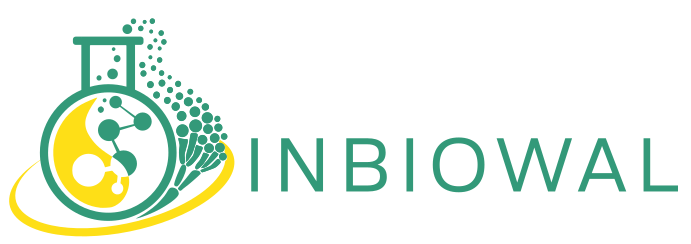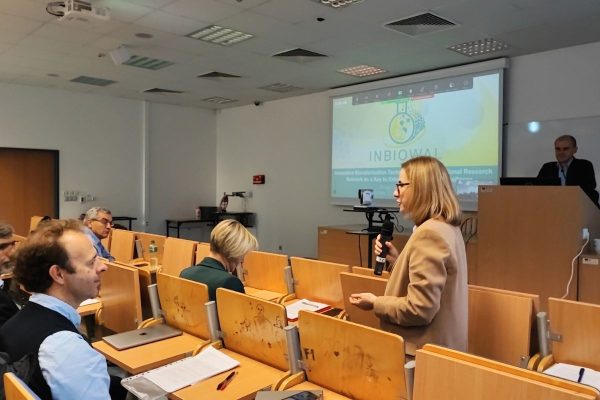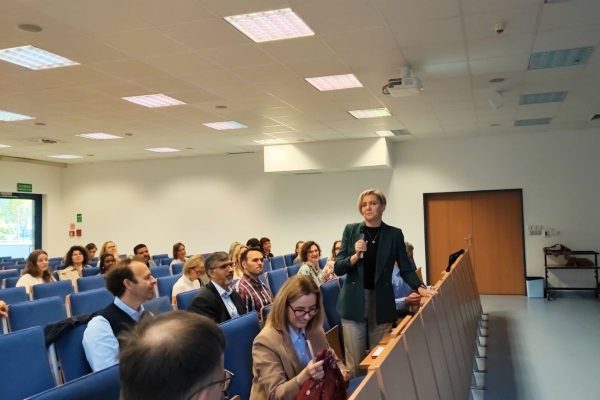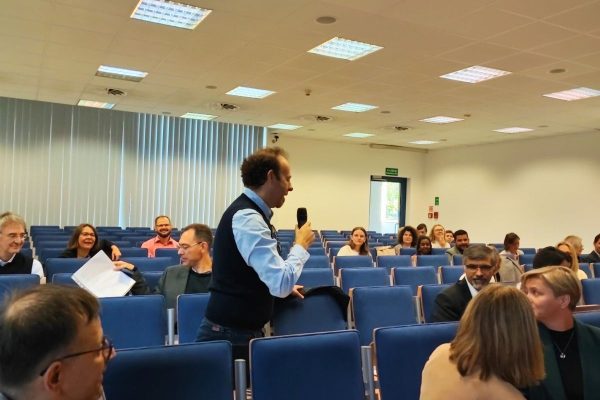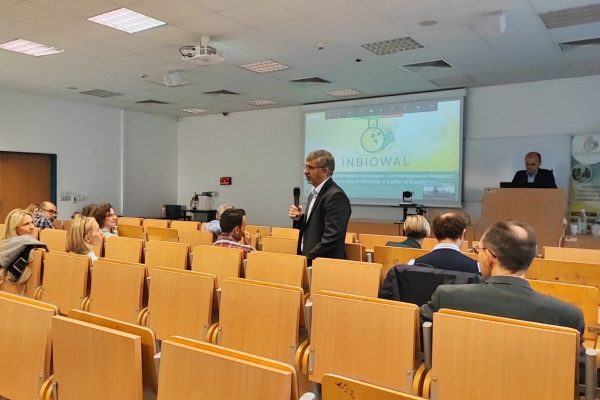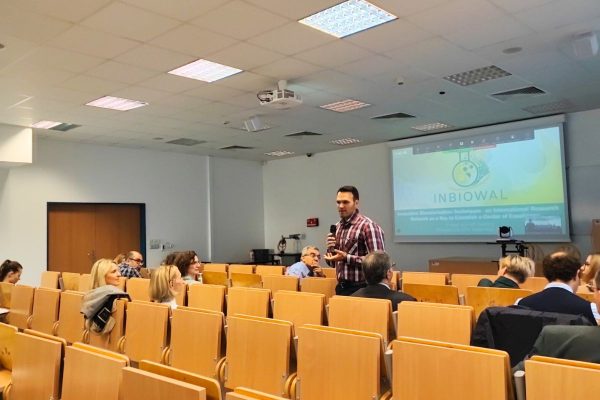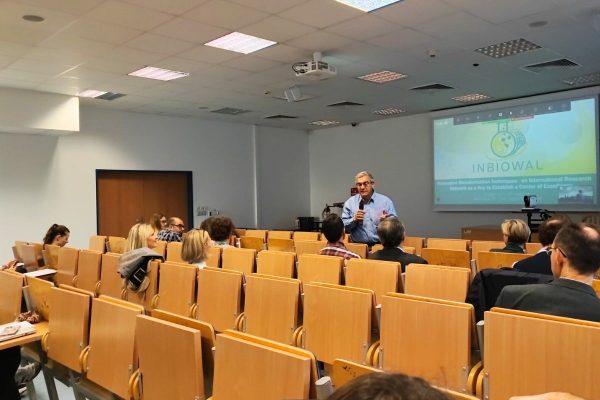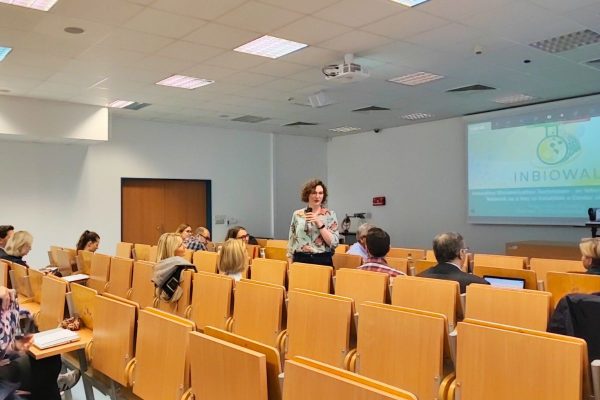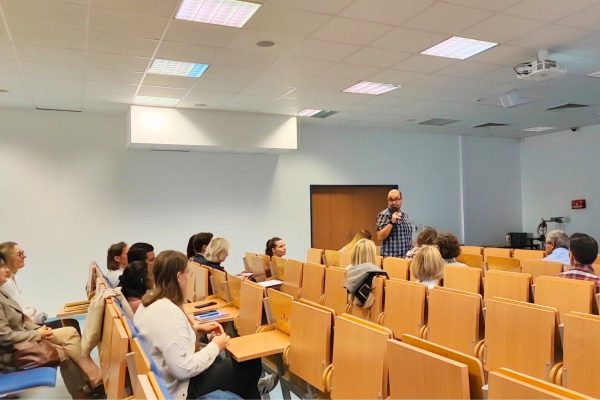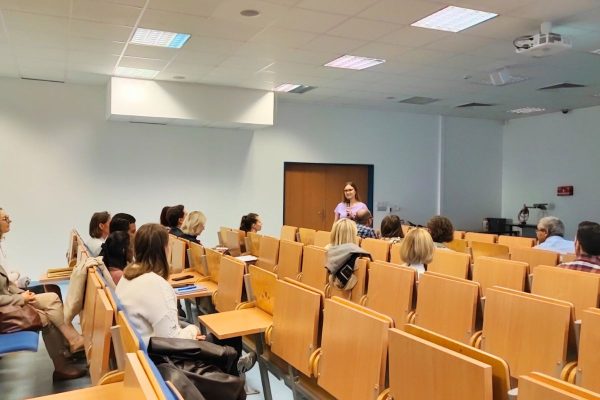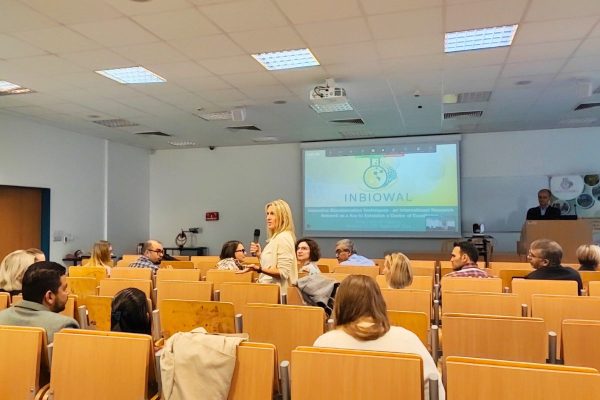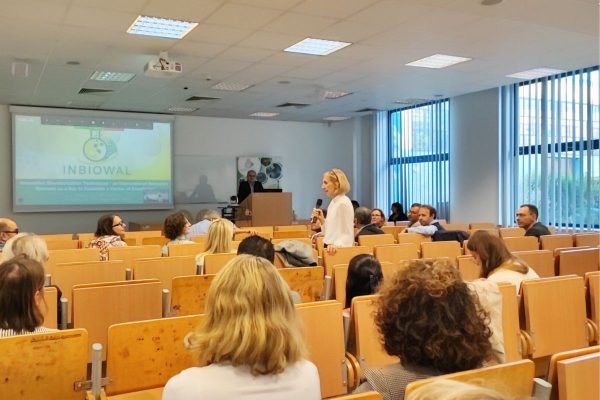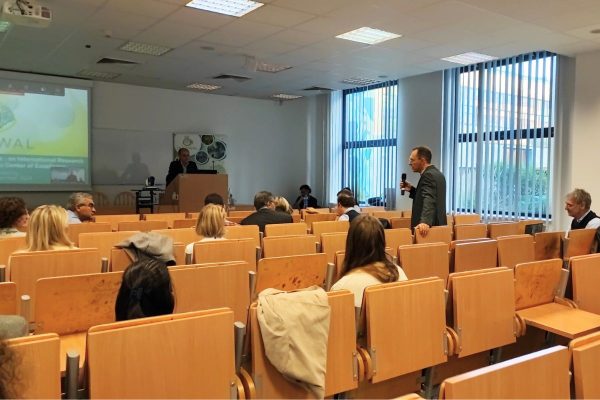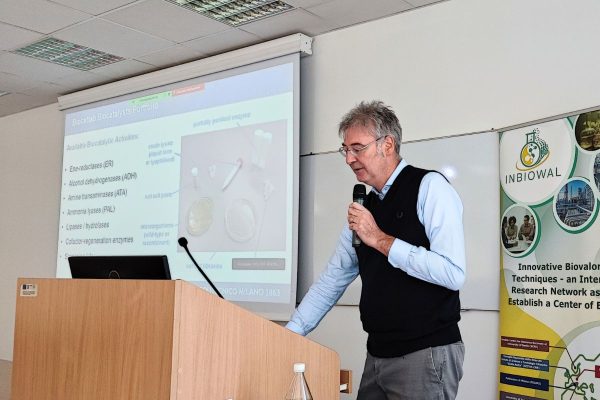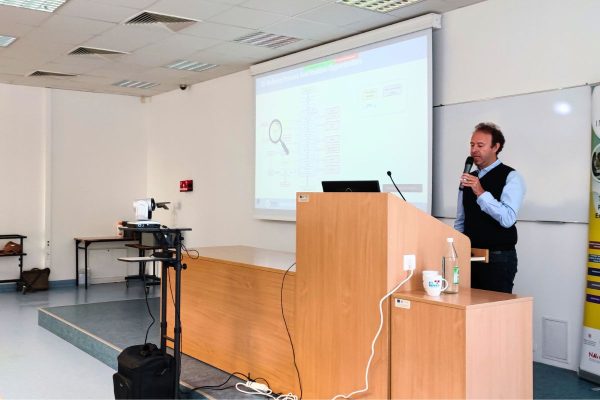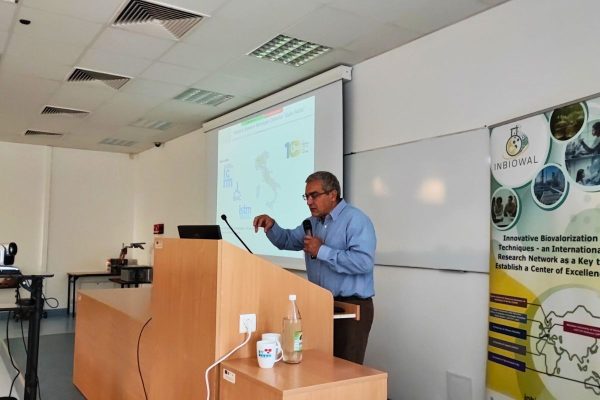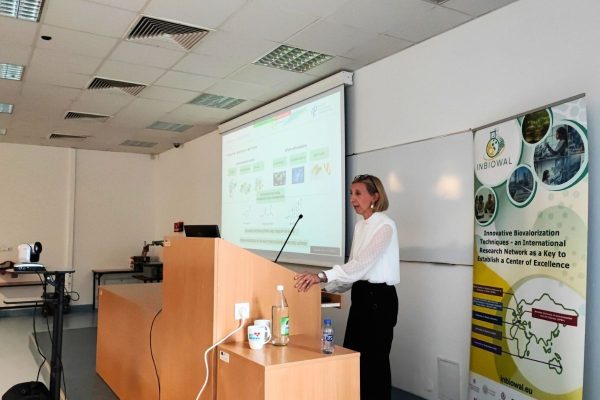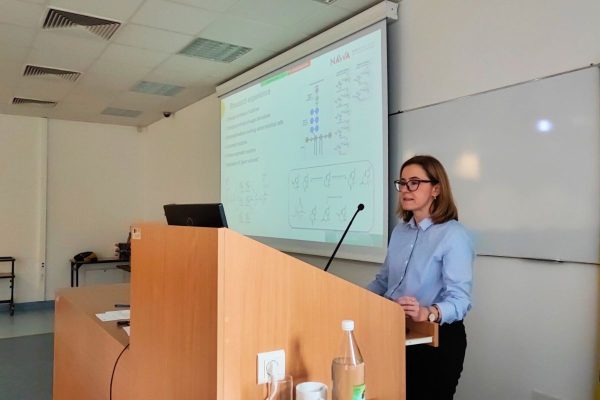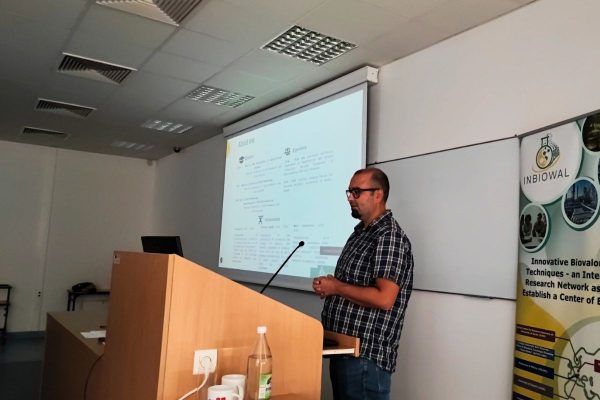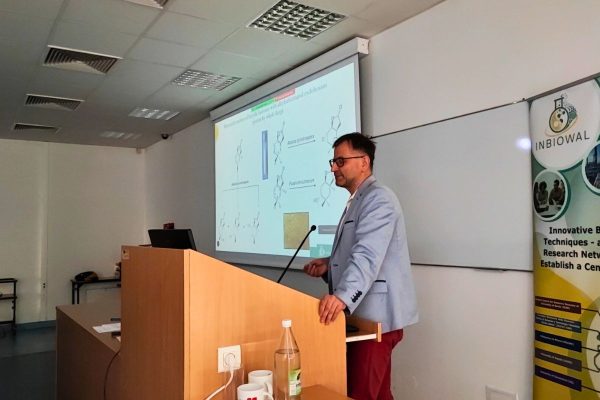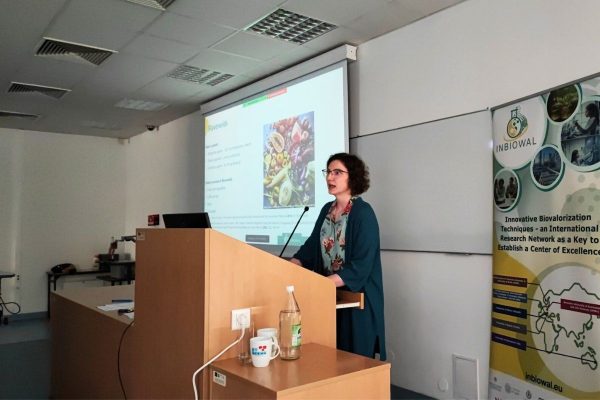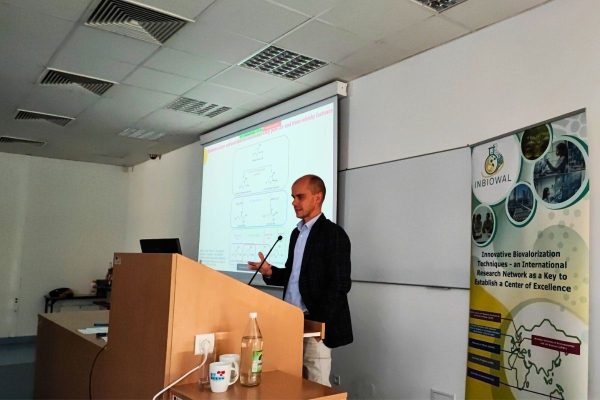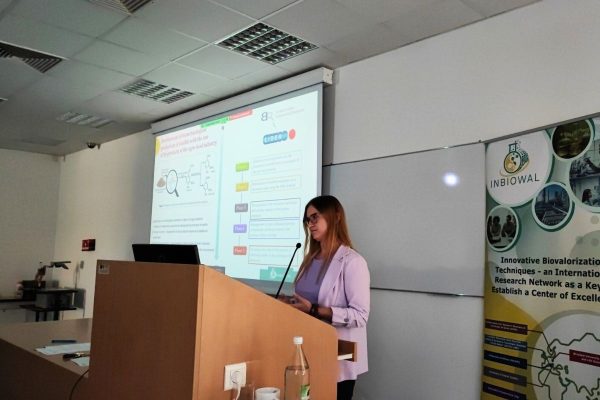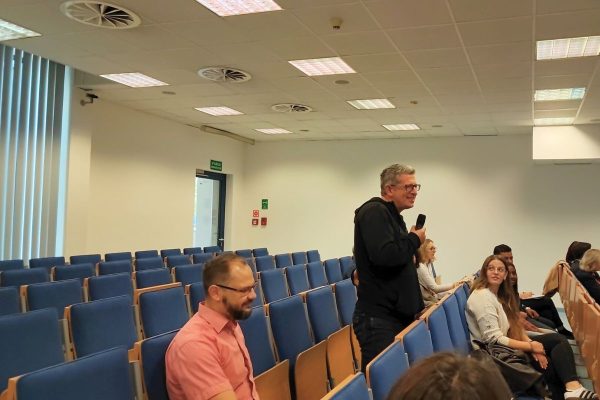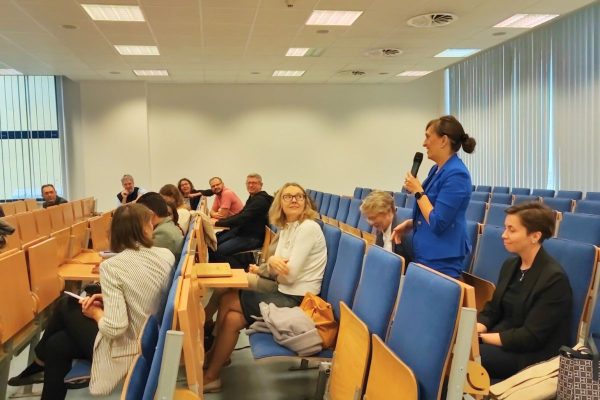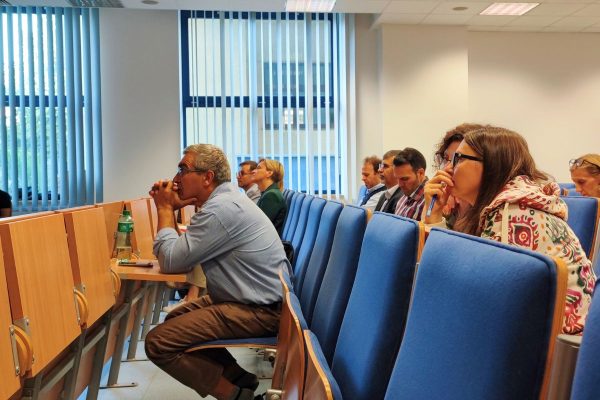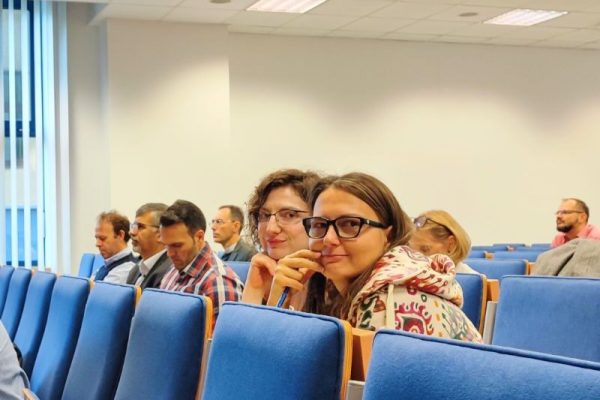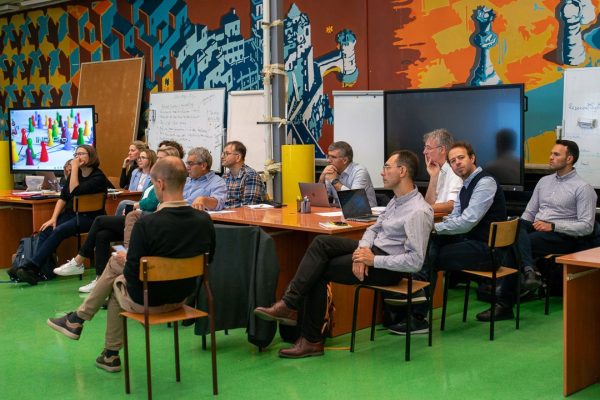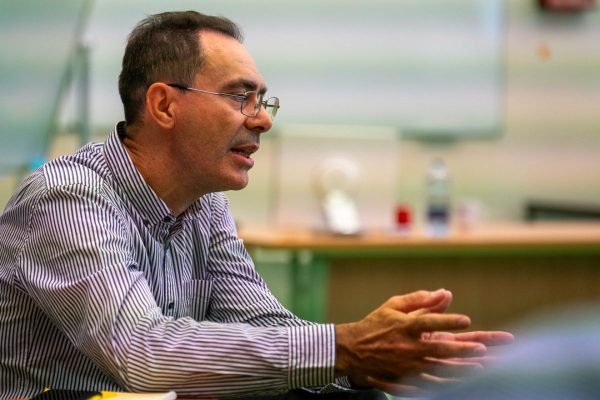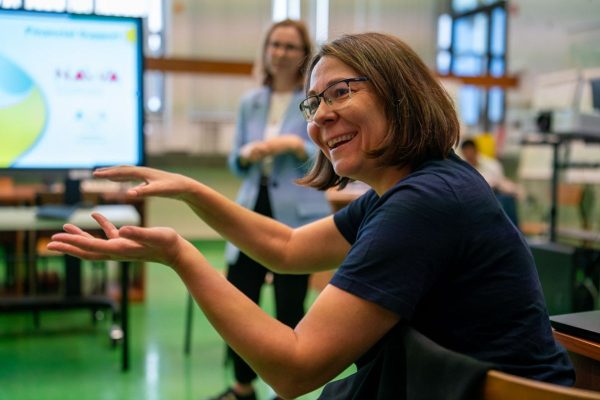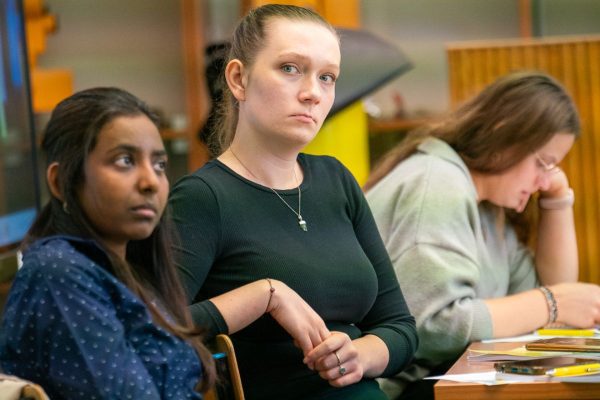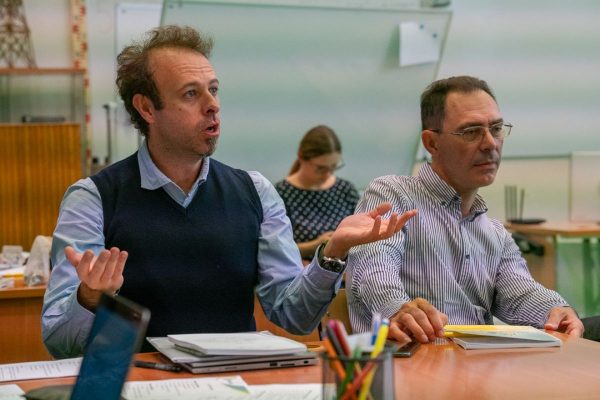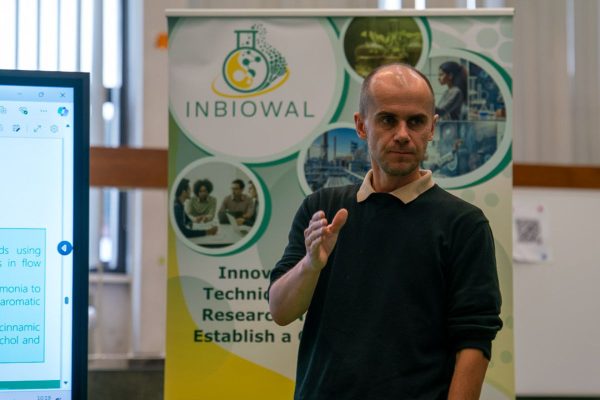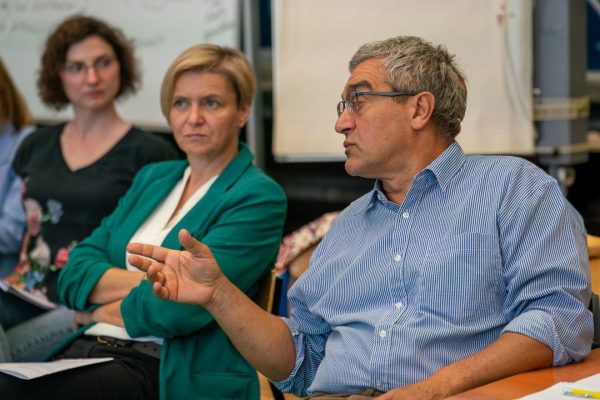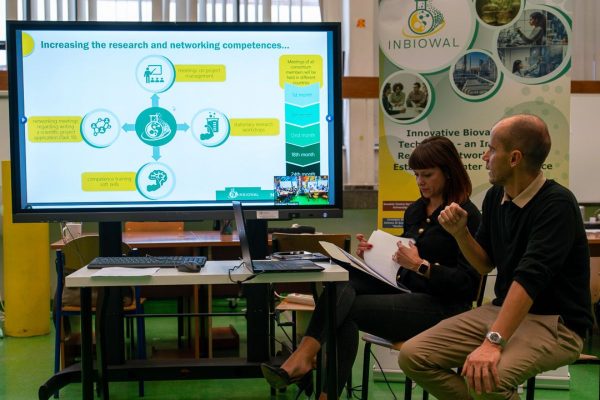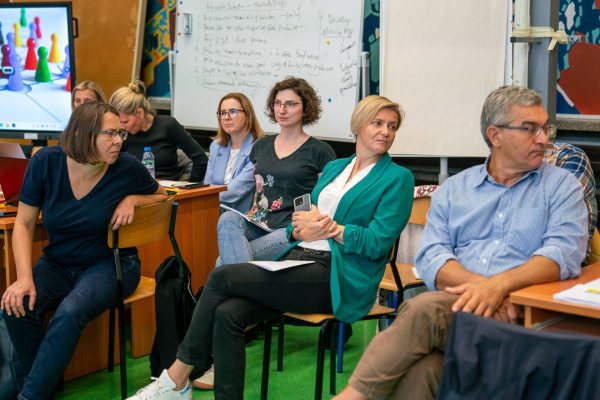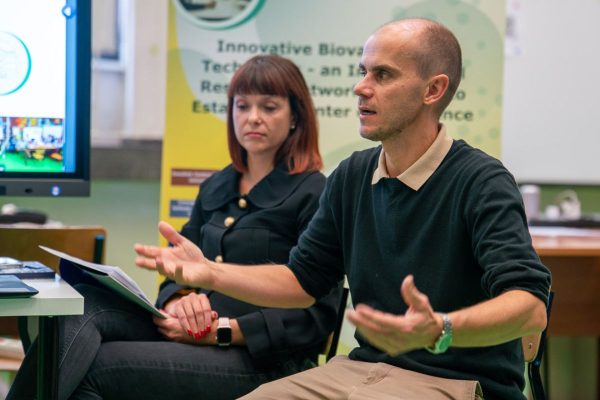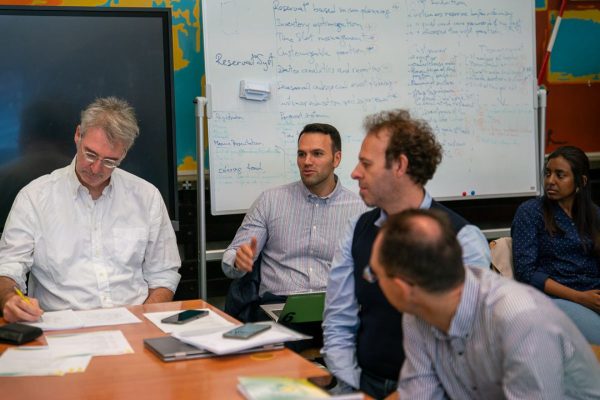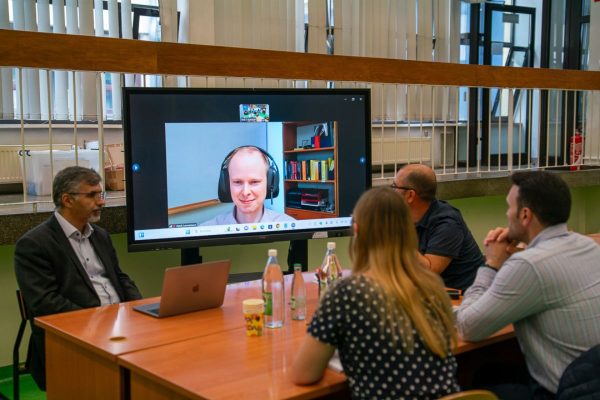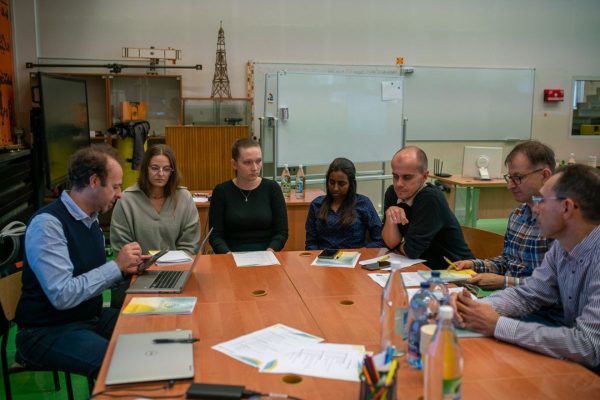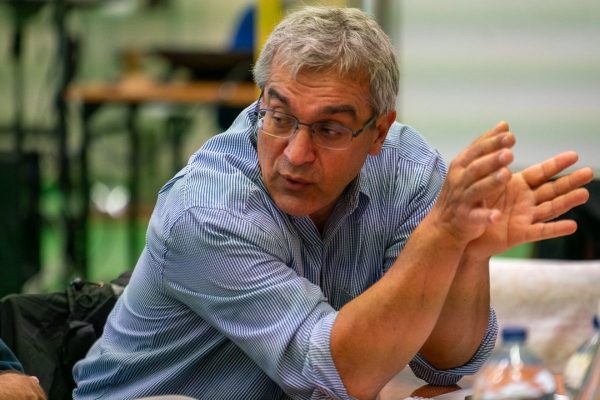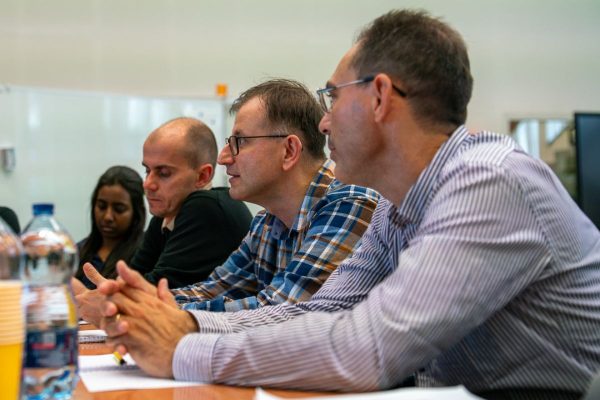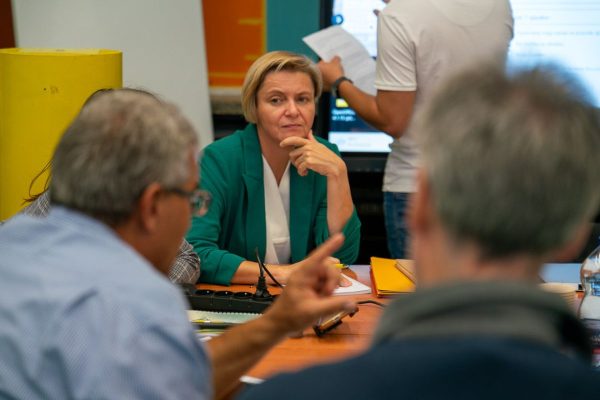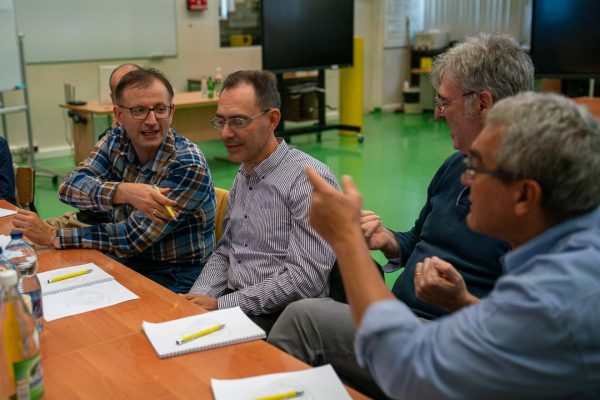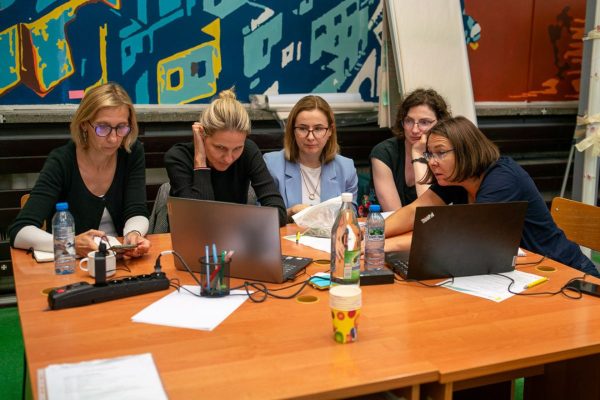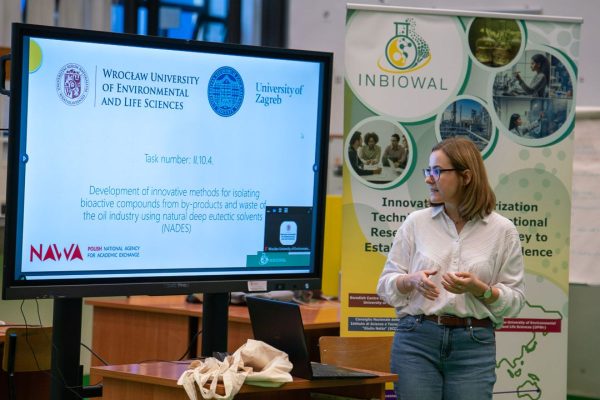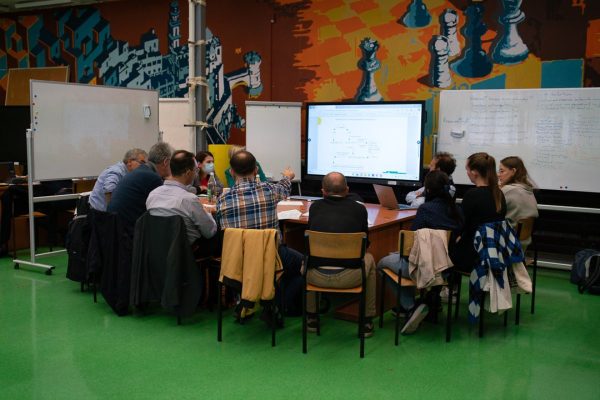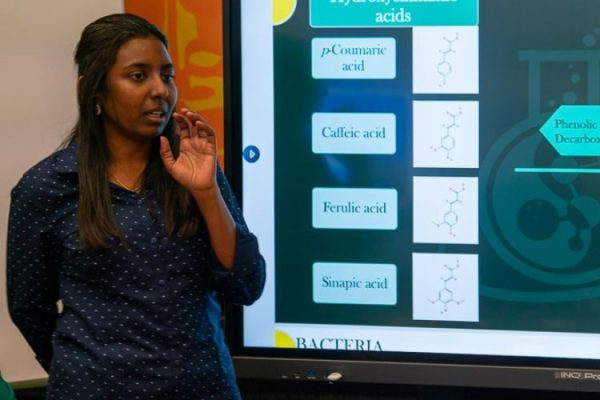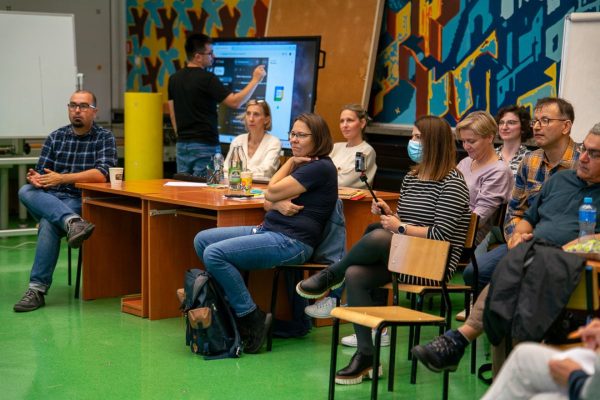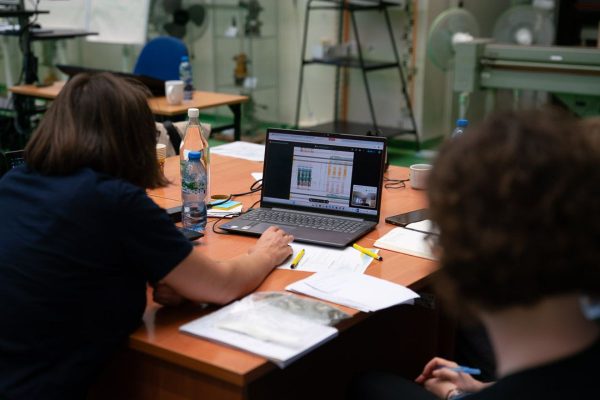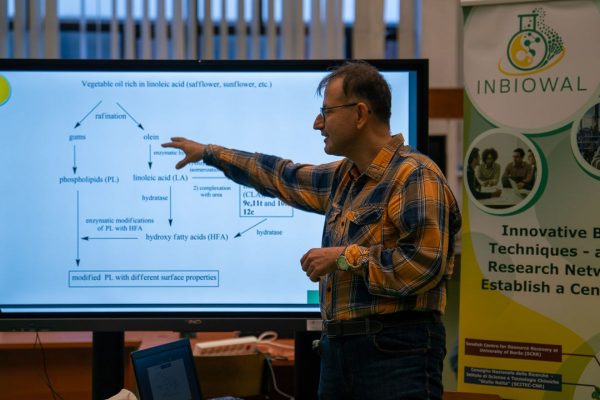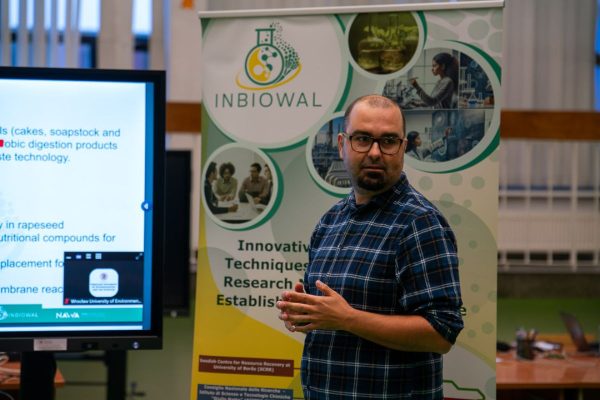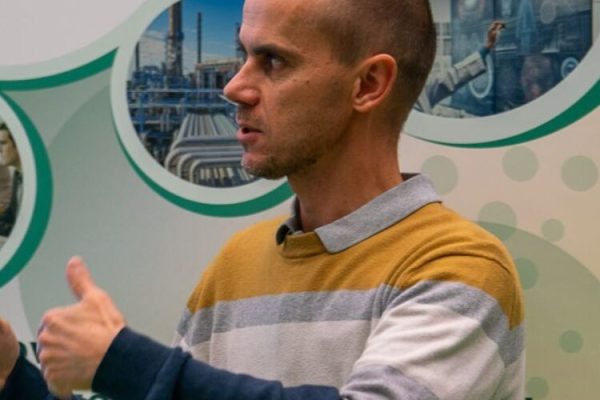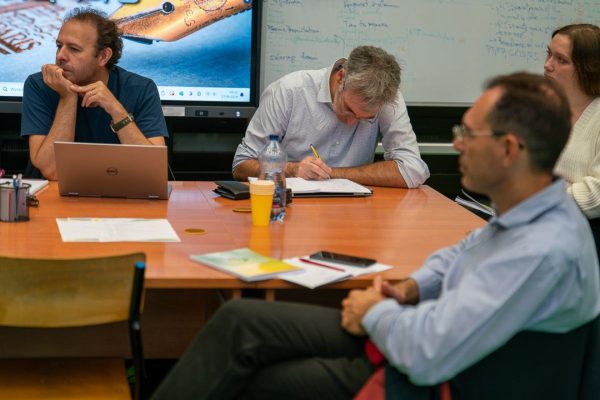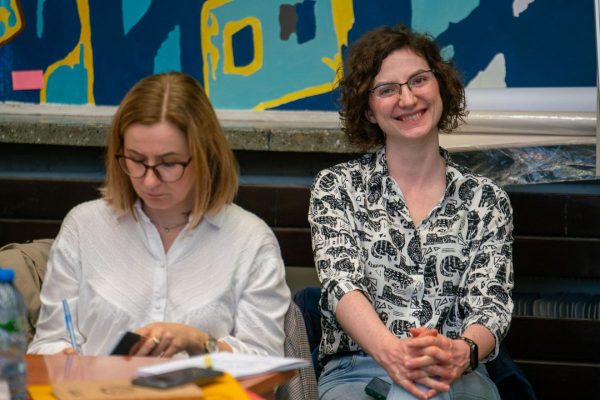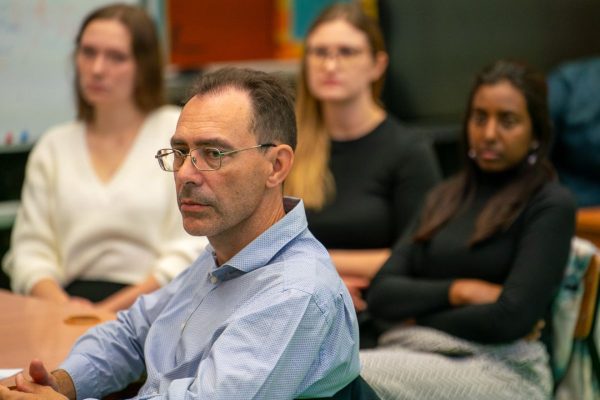Kick-off Meeting
Wrocław, September 25-27, 2024
Overview
The INBIOWAL Kick-off Meeting, held from September 25th to 27th, 2024, at the Wrocław University of Environmental and Life Sciences, marked the beginning of an ambitious international collaboration aimed at transforming waste into high-value resources using cutting-edge biotechnological methods. The event brought together distinguished scientists, project partners, and experts from five countries, setting the stage for groundbreaking research and global impact.
WELCOME AND OPENING REMARKS
The meeting commenced with an inspiring speech by Dr. Filip Boratyński, Project Coordinator, who introduced the overarching goals of the INBIOWAL project. Emphasizing the critical importance of sustainable solutions, he outlined how the collaboration aims to revolutionize waste management practices. Attendees were welcomed with a vision of a future where industrial by-products are converted into valuable products, benefiting both the environment and the economy.
PARTNER PRESENTATIONS
The event then moved into a series of engaging and insightful presentations from each partnering institution. Representatives from the University of Zagreb, Swedish Centre for Resource Recovery, Politecnico di Milano, Consiglio Nazionale delle Ricerche, and the University of Queensland shared detailed overviews of their respective research strengths and ongoing projects. Each presentation provided a deep dive into specialized areas such as enzyme engineering, molecular biology, biocatalysis, microbial biomass production, and green chemistry.
University of Zagreb highlighted their groundbreaking work on designing and using Natural Deep Eutectic Solvents (NADES) for the efficient extraction of bioactive compounds from industrial by-products. They emphasized the eco-friendly aspects of their research, aligning perfectly with the project’s sustainability mission.
The Swedish Centre for Resource Recovery presented their innovative approaches to converting waste into microbial biomass and valuable metabolites, showcasing the latest advances in resource recovery and the circular economy. Their research focused on optimizing bioprocesses for maximum efficiency and minimal environmental impact.
Politecnico di Milano presented its expertise in the biocatalyzed synthesis of flavors, fragrances, and active pharmaceutical ingredients, as well as in the development of enzymatic processes in continuous flow mode. They also discussed their role in developing chemoenzymatic processes for the valorization of waste (lignin, hemp, seed, and olive oil), which could be game-changers for various industries, including cosmetics and pharmaceuticals.
Consiglio Nazionale delle Ricerche (SCITEC-CNR) shared its research leveraging advanced technologies for biomass valorization, illustrating how they use enzymes in unconventional media to synthesize high-value compounds. They provided compelling examples of how biocatalytic transformations could streamline industrial processes and contribute to a greener economy.
The University of Queensland introduced an engaging virtual presentation on molecular engineering, focusing on ancestral sequence reconstruction to improve enzyme stability and efficiency. They highlighted the global relevance of their research and how their expertise in enzyme optimization plays a crucial role in the project’s overall success.
These partner presentations not only showcased the depth and diversity of expertise within the INBIOWAL consortium but also underscored the potential for groundbreaking advancements through interdisciplinary collaboration. Attendees left the session with a clear understanding of how each partner’s contributions interconnect to form a comprehensive and impactful research strategy aimed at sustainable waste valorization.
WORKSHOPS AND GROUP DISCUSSIONS
The INBIOWAL Kick-off Meeting featured a series of interactive and engaging workshops designed to provide in-depth exploration of the project’s core research tasks, promoting hands-on learning and fostering collaborative problem-solving among participants. These sessions were a dynamic platform for knowledge exchange, where experts and young researchers worked together to develop innovative solutions tailored to real-world challenges in waste valorization.
Bioactive Compound Extraction with NADES. One of the primary focuses was on advanced techniques for extracting bioactive compounds using Natural Deep Eutectic Solvents (NADES). Researchers discussed the benefits of NADES, emphasizing their eco-friendly nature and efficiency in isolating valuable compounds from waste biomass. Participants engaged in practical exercises and theoretical discussions led by experts from the University of Zagreb, gaining insights into the design and application of NADES for optimal extraction results. The workshop also included a critical evaluation of the environmental and economic impacts of these processes, highlighting their potential to revolutionize industrial waste valorization.
Microbial Biomass Production. Another key area of focus was the transformation of industrial by-products into high-value microbial biomass and metabolites. The Swedish Centre for Resource Recovery (SCRR) facilitated this session, presenting their latest advancements in bioprocess optimization. Participants explored strategies for maximizing the yield and quality of microbial biomass while minimizing environmental impact. The group discussions provided a forum to share best practices and innovative ideas for scaling up these processes, addressing challenges such as nutrient recovery and bioreactor design.
Biocatalytic Processes and Molecular Engineering. This workshop, led by experts from Politecnico di Milano and Consiglio Nazionale delle Ricerche (SCITEC-CNR), focused on the use of biocatalysis to transform waste lipids and phenolic compounds into high-value products. Scientists engaged in lively debates about the potential of enzymes, such as lipases and hydrolases, to catalyze reactions. Group problem-solving activities encouraged participants to apply theoretical knowledge to real-world scenarios, fostering a deeper understanding of sustainable biocatalytic transformations.
These workshops and group discussions were instrumental in setting the stage for the project’s future research endeavors. They not only facilitated meaningful knowledge exchange but also laid the groundwork for developing practical, scalable solutions to some of the most pressing challenges in sustainable waste valorization.
VIRTUAL CONTRIBUTIONS FROM AUSTRALIA
A highlight of the INBIOWAL Kick-off Meeting was the engaging and insightful virtual session led by the team from the University of Queensland (UQ) in Australia. Despite the geographical distance, the Australian researchers made a significant impact on the event, presenting their latest advancements in molecular and synthetic biology through a live, interactive broadcast.
Ancestral Sequence Reconstruction (ASR) for Enzyme Optimization. The University of Queensland’s presentation focused on the cutting-edge technique of Ancestral Sequence Reconstruction (ASR), a powerful tool used to enhance the stability and functionality of enzymes. The UQ team explained how ASR involves tracing back the evolutionary history of enzymes to identify and recreate ancient, more robust versions. These optimized enzymes are crucial for biocatalytic processes, as they can withstand harsh industrial conditions while maintaining high catalytic efficiency, making them ideal for waste valorization applications.
Molecular Engineering for Sustainable Biocatalysis. The session also delved into various molecular engineering strategies aimed at improving enzyme selectivity and activity. The UQ researchers demonstrated how these techniques can be applied to transform waste-derived substrates into high-value products. Through compelling case studies and real-world examples, they showcased the transformative potential of engineered enzymes in making industrial bioprocesses more efficient and environmentally friendly.
The virtual contribution from the University of Queensland underscored the project’s commitment to leveraging global scientific expertise and highlighted the importance of integrating molecular engineering advances into sustainable waste management solutions. This session expanded the scientific horizons of attendees and provided valuable insights from one of the leading research institutions in enzyme technology.
NETWORKING OPPORTUNITIES AND CULTURAL IMMERSION
Beyond the academic sessions, the Kick-off Meeting provided numerous networking opportunities, allowing participants to forge strong professional connections. Evening dinners and a guided tour of Wrocław offered a glimpse into the city’s rich cultural heritage, fostering camaraderie and team spirit among researchers.
